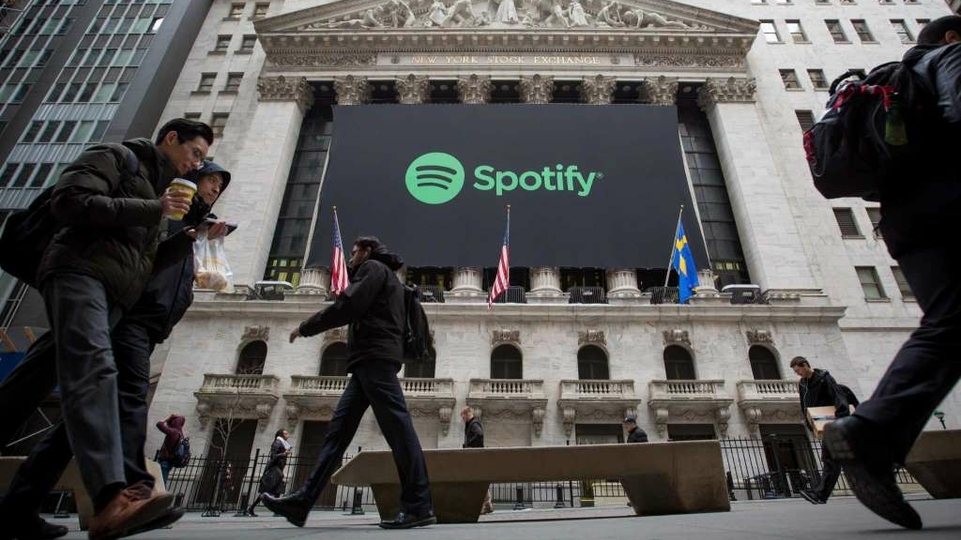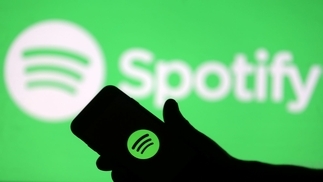Spotify enters New York Stock Exchange valued at $26.5 Billion
The wrong flag was raised on Wall Street to mark the occasion, mind you...

Streaming giant Spotify entered the New York Stock Exchange for the first time yesterday (3rd April).
Having gone public with its intention to enter the stock market at the start of March with an estimated value of $23 billion, the platform started trading yesterday at $165.90 a share in what was the largest ever direct listing into the Stock Exchange. Individual share costs eventually settled on $149.01, leaving the world’s largest music streaming service being valued at $26.5 billion.
In an open letter placed on Spotify’s website before trading began, chief executive Daniel Ek said, “I am proud of what we’ve built over the last decade. But what’s even more important to me is that tomorrow does not become the most important day for Spotify.”
“Spotify has never been a normal kind of company,” he added. “As I mentioned during our Investor Day, our focus isn’t on the initial splash. Instead, we will be working on trying to build, plan, and imagine for the long term.”
Despite its ambitious entrance into the Stock Exchange, the Swedish company still faces immense competition from other industry giants such as Apple Music. “Investors are right to have some reservations," Michael Carvin, chief executive of personal finance technology firm SmartAsset, said in an interview with Reuters. "Even though Spotify's scale is about twice that of Apple Music, Apple has a huge ecosystem of products to market to."
As it stands, Spotify has roughly 71 million paid subscribers while Apple Music has 46 million.
Yesterday’s entrance onto the New York Stock Exchange by the streaming platform was marked by a slight mishap where, instead of the Swedish flag being raised on Wall Street, a Swiss one was. The mistake was amended swiftly however.
As Spotify has grown rapidly in recent years and months it has scarcely been out of the public discourse, owing to its constant innovations among other things. In January, the company was sued by Wixen Music Publishing for $1.6 billion over copyright infringement. In March, it unveiled Line-In, a new tool which it hopes will it add more precise metadata to make genre definitions more accurate on the platform.
Also in March, Spotify road tested a new DJ mixing software, which auto-beatmatched tracks when shuffle was engaged in certain playlists.





